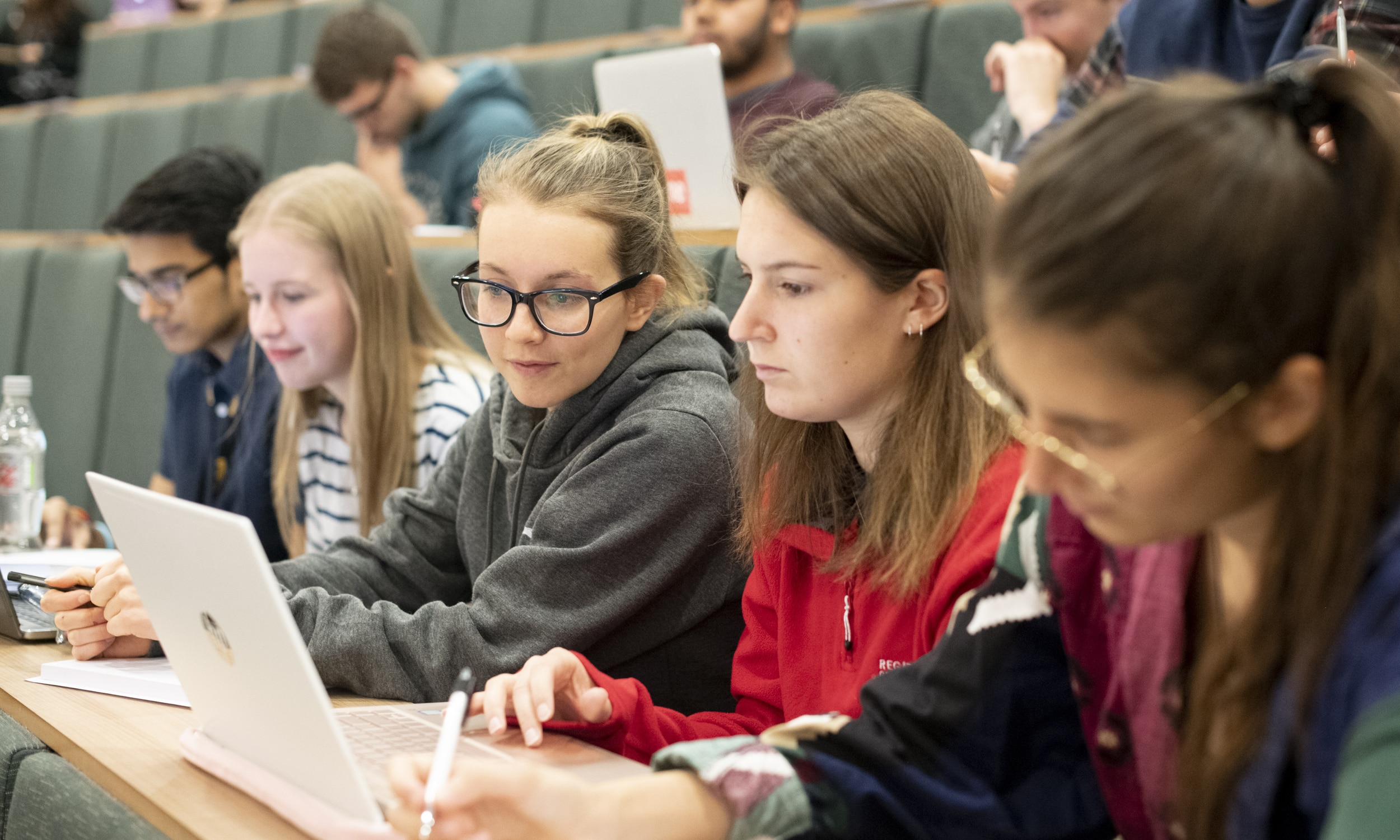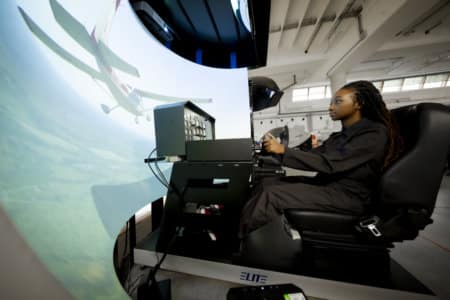For some people, numbers are the magic in the world that makes sense of everything. “Being fascinated by numbers and the logical methodology required to solve problems from a young age, I was certain a degree in Mathematics and Statistics at the University of Warwick would be where I would succeed the most,” says Krupa Raikundli, BSc Mathematics and Statistics graduate, 2021.
“I strongly believe the combination of these two beautiful sciences put together gives you both the theoretical foundations required to intuitively solve problems and the practical understanding to apply these thoughts to the real world.” After graduating in 2021, Raikundli worked for JP Morgan in Equity Derivatives. Today, she is a Graduate Sales and Trading Analyst at Citi in the UK.
Such outcomes are typical for those who choose a university that excels in providing a strong mathematical foundation through various undergraduate and postgraduate programmes.
Ranked third by the Complete University Guide 2023 for subject ranking Mathematics (Pure Maths, Applied Maths, Operational Research, Statistics), the University of Warwick is also the 16th in the World for Statistics and Operational Research according to QS World Subject Rankings 2023.
The university’s statistics department runs six undergraduate courses. The BSc MORSE (Mathematics, Statistics, Economics and Business) (Hons) and MMORSE (Hons) four-year integrated masters combine the study of pure mathematics and statistics with their applications to economics, finance and management, which are considered the core skills necessary for modern business analytics.
The BSc in Data Science (Hons) and MSci in Data Science (Hons) four-year integrated masters are the first of their kind in the UK, focusing on the mathematical approach to the computational analysis of data. They were designed for those who want exposure to the sophisticated theory and methods required for addressing modern data-analytic challenges.
Meanwhile, the BSc Mathematics and Statistics (Hons) and MMathStat (Hons) four-year integrated masters were crafted for those who love mathematics and solving modern problems inspired by modern sciences, technology, survey sampling, business, medicine, industry, government and many more areas.

With six undergraduate programmes to choose from, students can pick areas that interest them the most. Source: University of Warwick
All these six undergraduate programmes have been accredited by the Royal Statistical Society on an unconditional basis for students entering in 2024/2025. This will allow them to gain Graduate Statistician (GradStat) status with the RSS, a bonus which will benefit their career trajectory. The statistics department has an accreditation arrangement with the Institute and Faculty of Actuaries (IFoA), so if students complete particular modules to a high standard, they can be rewarded with exemptions from up to six professional examinations of the IFoA.
Experiential opportunities abound within these programmes. For example, in the third year of the BSc and the MSci Data Science courses, there is a data science individual project where students can turn their theory into practice in preparation for future endeavours. Some projects included modelling animal GPS data with stochastic analysis to feed machine learning algorithms for classifying behaviour, and calculating COVID-19 screening scheme testing errors using iterated conditional probabilities for implementation in a web app. For MMathStat, MMORSE, and MSci Data Science students, the fourth year brings a research project to demonstrate their mastery of some elements of statistics and data science. There is a wide range of topics for students to explore.
Not only are the University of Warwick’s programmes giving students a strong mathematical foundation, but they are interdisciplinary. Each gives learners the flexibility to specialise in areas that interest them the most — including in departments focused on computer science and economics.
With countless modules to choose from, you can find the topics that best suit your tastes and future goals. Of course, guidance is offered to those who need it. Raikundli says that with support from the statistics department and help from a personal tutor, students can certainly develop confidence while broadening their horizons.
“Doing this degree has enriched my analytical and problem-solving skills and given me the quantitative foundations for a career in trading,” she adds. “Stepping into a highly competitive field, I am assured that my degree will benefit me in stepping up to the challenges of life after university.”

In their third and fourth years, students undertake projects to demonstrate their mastery of some elements of statistics and data science. Source: University of Warwick (Hollis)
Ben Barlow (BSc Data Science graduate, 2020) left the University of Warwick ready for his first professional steps too. “I am so grateful to be entering the business world equipped with a specialised degree in the subject that is predicted to drive the economy for the foreseeable future instead of a general maths/statistics and computer science joint honours,” he says.
“I know that the career prospects associated with Warwick, coupled with a demand for individuals who possess the skills the degree teaches, will serve me well in the early stages of my career. For example, I was recently headhunted to interview for a Data Scientist role ahead of 400 applicants, simply because my degree was specialised and I studied at Warwick.” He is now a MSc Artificial Intelligence student at the University of Edinburgh.
It’s clear the University of Warwick’s statistics degree programmes arm students with the technical skills needed to tackle challenges in an uncertain world. With lecturing staff that are active researchers — in areas ranging from statistical theory and probability to applications in biology, economics, finance, medicine and more — students are in good hands.
The school has proven its mettle with graduates working in many industries and making great strides in their respective fields — from finance, technology, and government to the World Health Organisation and even extreme sports technology.
To further your love for statistics and data analysis at the University of Warwick, click here to apply.
Follow the University of Warwick on Facebook, Twitter, LinkedIn, Instagram and Youtube.













